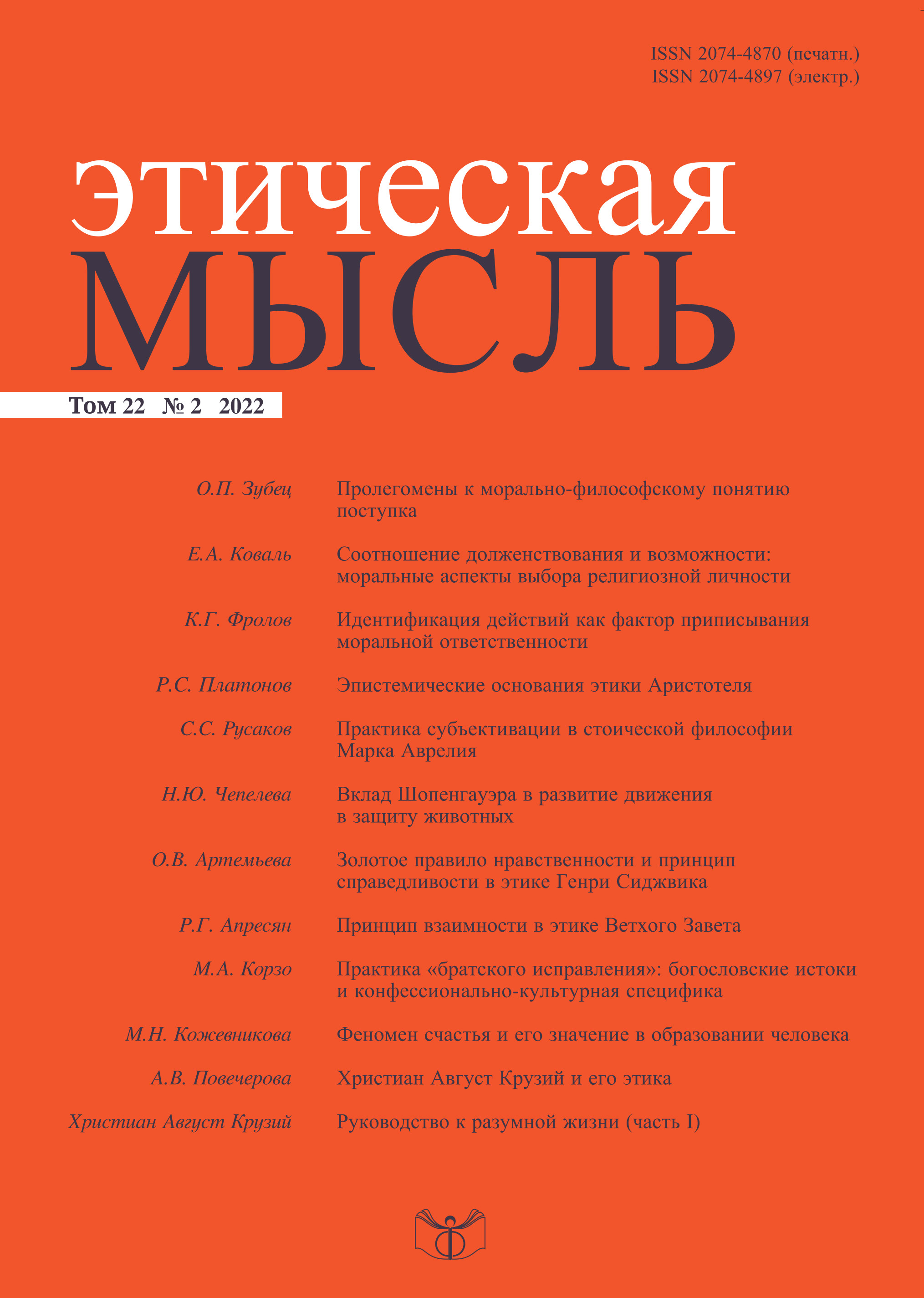Эпистемические основания этики Аристотеля
DOI:
https://doi.org/10.21146/2074-4870-2022-22-2-48-61Ключевые слова:
этика, мораль, добродетель, эпистема, эпистемология, практическое знание, АристотельАннотация
Цель статьи – показать основания этики Аристотеля как практической науки в фундаментальных для его философии концепциях, описывающих процесс познания, сущее в целом и человека как специфически сущее. Для этого проводится анализ понятия «эпистема» в философии Аристотеля, определяется структура знания по ключевым вопросам о сущем «что?» и «как?», а также специфика сочетания этих вопросов в этике. Выявляются ограничения познавательной способности человека и структура предмета познания, описанная Аристотелем посредством понятий «потенция», «энергия» и «энтелехия», раскрывающих предмет как процесс перехода из потенциального в актуально сущее, при этом не имеющее актуального завершения. Детальное его описание проводится посредством концепции четырех причин, где материальная причина фиксирует в познании сущее в возможности, а три другие (движущая, формальная, целевая) – различные аспекты его актуализации. Данный способ является универсальным для гносеологии Аристотеля и позволяет увидеть все сущее как глобальный процесс целесообразного изменения. Показывается, что развитие отдельного человека рассматривается Аристотелем включенным в процесс развития человечества, его структура как предмета познания представлена посредством концепции души, где взаимодействие частей души определяет качество деятельности человека. Делается вывод, что перечисленные концепции являются эпистемическими основаниями этики, так как определяют предмет ее изучения – человека, раскрывая его природу как перманентную деятельность, включенную в родовое развитие и имеющую цель в самой себе.









